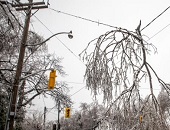Ethical Decision Making
Why do well-meaning people engage in unethical behavior? Given that a healthy financial market depends on trust, and that trust is earned through ethical behaviour, ethics are fundamental to ensuring the integrity of finance professionals. A panel of two experts in ethical decision making from the CFA Institute—Jon Stokes, Director, and Paul Johnson, Manager and Special Investigator—spoke live to an audience of about 700 on October 21, 2020 in celebration of Global Ethics Day 2020. A survey of 3500 retail investors showed which industry sectors they ranked as “highly trustworthy.” Medicine was at the top of the list, with 68 […]
Healthy skepticism
Selecting environmental, social, and governance (ESG) funds is a way that ordinary citizens can invest in an ethical way. But what does the increased interest in ESG investing shown by institutional and private wealth clients really mean? Is it paying off? Are we at a watershed moment for structural change in the way investors allocate resources? The move to consider ESG investing came some years ago with scandals such as Enron, and continues with more scandals such as Volkswagen’s Dieselgate and Facebook’s meddlings, said Pedro Matos, a professor of finance at University of Virginia and the author of the CFA […]
New World Order 2
From state-owned enterprises to the Covid-19 pandemic, issues in China affect the Canadian investment environment and capital flow decisions. Given China’s ascendance in the global economy, what is the best strategy to ride the wave upward, too? What are potential danger areas? The following is the second half of a report on the webinar “New World Order: How China’s Rising Affects Investment Strategy” held on June 15, 2020, and sponsored by the CFA Society Toronto. Three panellists were interviewed by Tanya Lai, Managing Director, Public Equities, of the Investment Management Company of Ontario (IMCO). Lai noted there was increased scrutiny […]
New World Order 1
From trade wars to 5G technology, issues in China are having an impact on the Canadian investment environment and capital flow decisions. What effect will China’s ascendance have on the global economy? What is the best strategy to ride the wave upward? What are potential danger areas? On June 15, 2020, Herbert Zhang, the chair of the institutional asset management committee of the CFA Society Toronto, welcomed three panellists at the webinar titled, “New World Order: How China’s Rising Affects Investment Strategy.” The panellists shared their thoughts on how investors should view US-China trade tensions and deal with the associated […]
The Value of Data
What is the value of data? Who benefits from data? Can you construct a decent predictive model to manage risk if you have lousy data? Some enterprising souls have tried to sell their data back to the tech giants that collect and use big datasets. There are even some small companies such as CitizenMe and Datum that pay a user for taking a quiz or sending location data. “Data are far from becoming a standardized commodity whose value can readily be established through trades,” writes Diane Coyle, professor at University of Cambridge, in a report she tabled February 26, 2020, […]
Top 5 Trends in Risk Management
The champagne has been drunk, and the New Year has been rung in. What trends are predicted in risk management as we welcome the new decade? “In 2020, we’ll likely see significant changes in risk models, processes and functions,” predicts Brenda Boultwood, Risk Advisory Partner at Deloitte. As a senior expert in risk culture and corporate governance, she published an article online January 10, 2020, for the Global Association of Risk Professionals (GARP). We present the highlights and a link to the full article below. The three lines of defense business model, as we know it, will end This is actually […]
From brown energy to green
How will climate change affect the financial sector and the broader economy? What policy responses will mitigate climate change risks? Recently, the US Federal Reserve Bank (FRB) sponsored the first conference dedicated to exploring the economic and financial risks associated with climate change. “Climate change will have sweeping effects on our economy and financial system,” says the report summarizing the main themes of the conference. The report, released on December 16, 2019, was co-authored by Galina B. Hale, Òscar Jordà, and Glenn D. Rudebusch. Hale is a research advisor and Jordà and Rudebusch are both senior policy advisors at the Federal […]
Machine learning sniffs out corruption
“Bribery and corruption are by-products of risk culture,” said Aparna Gupta, Associate Professor at Lally School of Management at Rensselaer Polytechnic Institute. “We can take a step back and devise methods to detect it using textual data and machine learning.” Gupta was the second of two speakers at the one-hour webinar “Corruption and Corporate Governance” sponsored by the Global Association of Risk Professionals (GARP) on October 30, 2019. Since culture is intangible, empirical work on the relation between risk culture and risk management is limited. Traditional approaches for assessing risk culture have many drawbacks such as bias and lack of comparability. Nonetheless, […]
Earthquakes kill, and so does bribery
“Bribery and corruption are not victimless crimes,” said Hilary Rosenberg, Managing Director and Global Head of Anti-Bribery & Corruption at Standard Chartered Bank. To drive home the point, she showed a brief video in which the pile of rubble from an earthquake is compared to a house collapsing because corruption allowed an unsafe building to be approved. Furthermore, corruption “can hinder economic progress and destroy people’s trust in their government,” Rosenberg said. She was the first of two speakers at the one-hour webinar “Corruption and Corporate Governance” sponsored by the Global Association of Risk Professionals (GARP) on October 30, 2019. Anti-corruption policy […]
A Good Start…
Financial risks due to climate change are receiving more attention of late, particularly for investors and regulators, but how far along are firms in addressing the issues? A report on climate risk management at financial firms tabled on June 28, 2019, sponsored by the Global Association of Risk Professionals (GARP), answers the question with its subtitle: “A Good Start, But More Work to Do.” The report is co-authored by Jo Paisley, Co-President, and Maxine Nelson, Senior Vice President at GARP. “Our sample covered 20 banks and seven other financial institutions … from across the globe. These firms have a global […]










